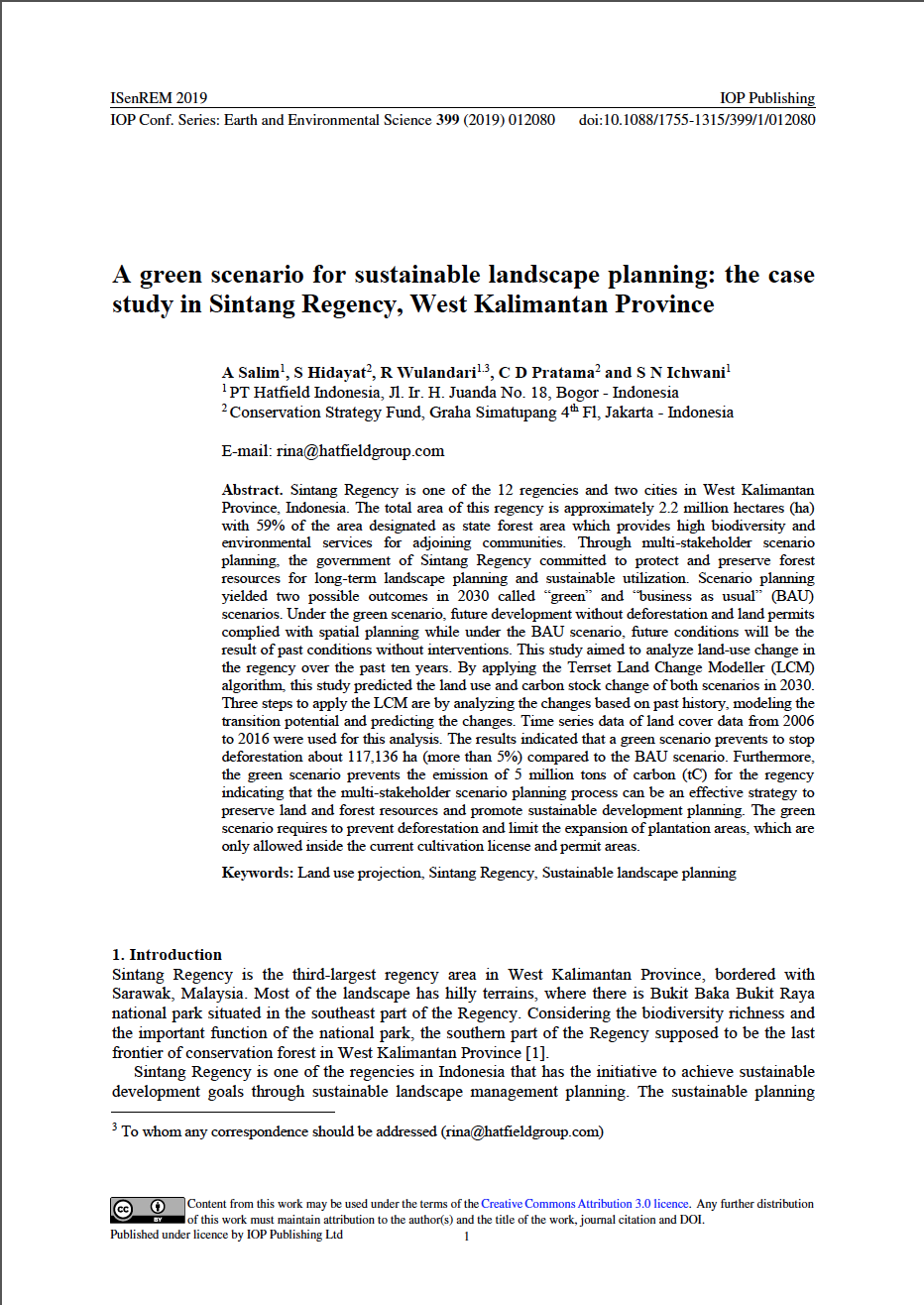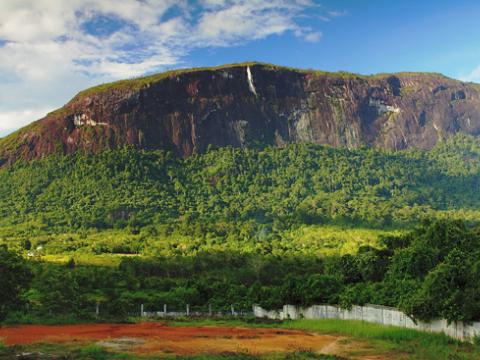A Fruitful Discovery: Sustainable Agriculture for the Green Sintang Initiative
As part of Borneo Island, Sintang is blessed with its primary rainforest and vast biodiversity. The fertile soil of this beautiful island has become a livelihood staple for the Sintang people, however, it is under a great threat. Agricultural deforestation has created imbalance within the ecosystem, and must be addressed with an ecological and economic sustainability approach. This ongoing challenge to Sintang’s agricultural development is being addressed by the Sintang government’s Green Sintang Initiative with the help of CSF Indonesia (Yayasan Strategi Konservasi Indonesia).
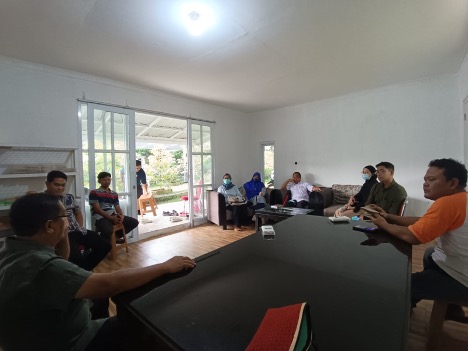
In April, CSF Indonesia visited the Daun Tropis Indonesia nursery garden in Bogor City, West Java. Daun Tropis Indonesia (DTI) is a community-based organization of agriculturists that works to create sustainable agriculture that will improve the environment and socio-economic development of the Indonesian people. Founded by four dedicated agricultural experts and practitioners: Dr. Azis Natawijaya Asep Sugih Suntana Ph.D., Taufiqul Hakim, and Danu Sabda, DTI has grown many kinds of agriculture varieties that will support the sustainable development of Indonesia's forests. Worldwide, most farmers have adopted a monoculture method which leads to the degradation of land and the reduction of biodiversity. Dr. Asep and Dr. Azis are working to generate responsible agricultural practices that will sustain the environment and the livelihoods of the local population.
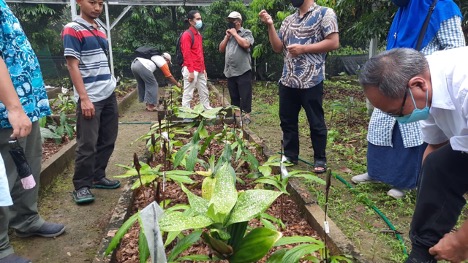
DTI upholds the three pillars of global conservation in its method, (i) Life support protection system; (ii) Preservation of the diversity of plant species and their ecosystems; (iii) Sustainable use of living natural resources and their ecosystems. These methods are believed to bring sustainability and balance to the forestry ecosystems with agricultural activities.
After learning about DTI’s mission and methods, we suggested a collaboration between DTI’s work in sustainable agriculture and our work in Sintang. This could be a fruitful partnership that brings sustainable economic development to the Sintang forest regions.
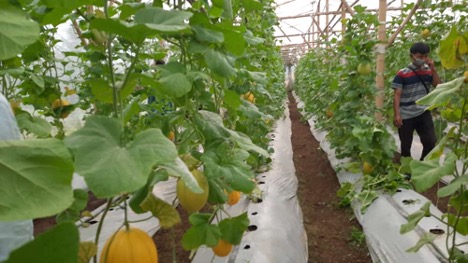
Throughout 2022, YSKI and the Sintang Government will hold a series of discussions on the Sustainable Sintang implementation; an initiative to transition to sustainable, low-carbon development principles, and the preservation of natural resources and ecosystems throughout the Sintang region. The presence of DTI could provide Sintang with a new sustainable approach to the regent’s agricultural development.
This collaboration was made possible by The David and Lucile Packard Foundation.
- Log in to post comments

